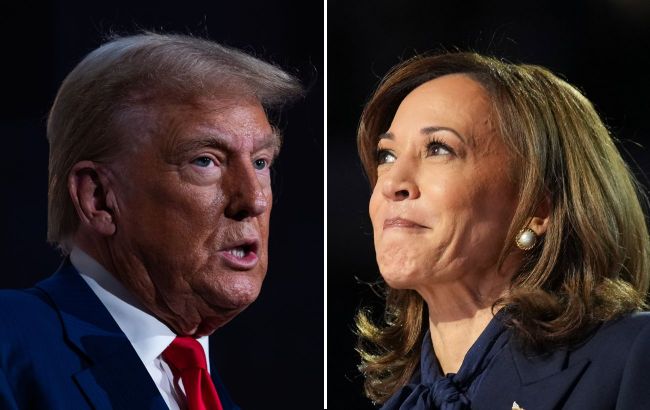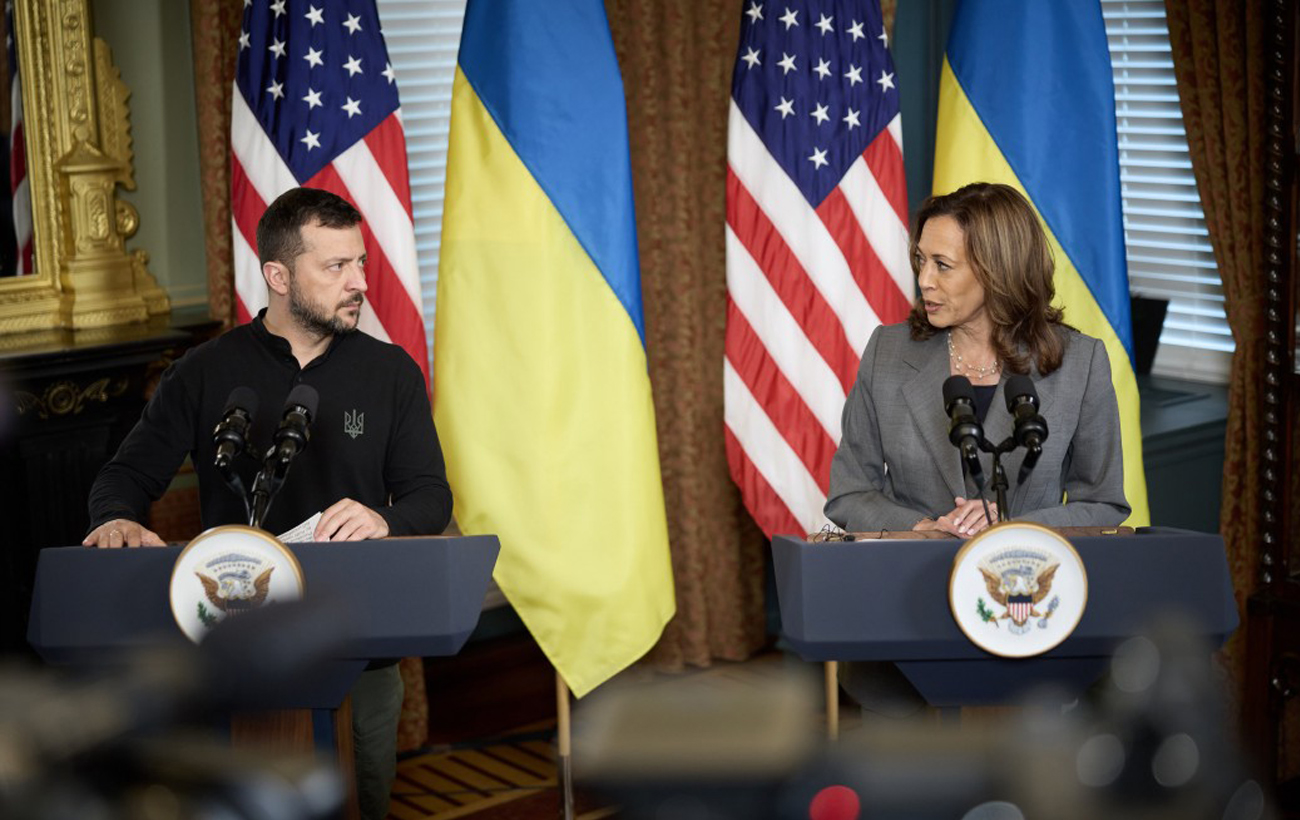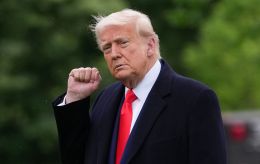Coin tossed: Will Ukraine see good news after US presidential election
 Donald Trump and Kamala Harris (collage: RBC-Ukraine)
Donald Trump and Kamala Harris (collage: RBC-Ukraine)
Today, the United States will hold its presidential election. Why does neither possible outcome offer much optimism for Ukraine? Read more in the material by RBC-Ukraine.
“Trump is a terrible end, while Kamala is horror without end. You decide which is better,” said a Ukrainian government official to RBC-Ukraine a few months ago, addressing the core question that has been on Ukraine’s mind lately: who is better for us, President Harris or President Trump?
Since then, clarity hasn’t increased much, even though President Volodymyr Zelenskyy visited the US and personally spoke with both contenders for the highest office.
The visit may have shaken some support among Ukrainian Trump advocates. Trump’s comments — that all Ukrainian cities have been wiped out, the army is left with only children and the elderly, and Zelenskyy is solely focused on securing another bag of money from the US — are hard to interpret in any positive light. Trump even outlined his proposed solution: Ukraine should give Russia whatever it wants, and then the war will end.
While the “Trump plan for Ukraine” remains vague, some still hold onto the hope that Trump’s unpredictability and impulsiveness could ultimately benefit Ukraine. According to this view, Trump might impose unexpected demands on Putin, leading to a backlash that angers Trump enough to push Congress into approving massive aid for Ukraine. However, this theory has far too many “ifs” to be a solid basis for any serious expectations.
However, it is still not entirely clear with Kamala Harris. The prevailing opinion is that if she wins, she will generally continue Joe Biden’s policies, including those regarding Ukraine. Certainly, compared to her opponent, she appears to be much more systematic and predictable, but that says little about how she will structure her foreign policy.
Firstly, a lot depends on who in her administration will handle this area, especially since Harris has not shown much interest in foreign policy throughout her political career. With some specific exceptions, current top figures in the Biden administration will not be part of Harris’s cabinet. Secondly, predicting the actions of any future president based on their activity before taking office is a thankless task. Who knows this better than Ukrainians with their current head of state?
The RBC-Ukraine interlocutor's assessment of a “terrible end” or “horror without end” is based on the belief that the US will inevitably withdraw from Ukraine, regardless of who wins the election.
The common argument that America has invested too much in Ukraine and is too deeply entrenched here, and thus will not abandon us just out of unwillingness to lose its “investments,” unfortunately does not hold up to practical scrutiny. The most striking example is Afghanistan, where Americans invested much more, in every sense of the word, and were much more deeply embroiled. Yet when the decision was made, the US left. However, how this was done is considered one of the major failures of the Biden administration.
Of course, the style of “withdrawal” from Ukraine under Trump and Harris would differ significantly. Trump could abruptly cut everything off, simply not raising the issue of a new aid package for us — assuming that his attempt to organize “peace in 24 hours” predictably fails.
While Harris may not be as overtly isolationist, she will clearly focus on domestic issues, reducing US involvement in the war and shifting responsibility onto Europeans.
At the same time, the US will still attempt to avoid allowing Ukraine to be completely defeated and for the aggressors to achieve military victory. According to several studies, such an outcome to the Russo-Ukrainian war would not be acceptable to most American voters, including Republicans. It would certainly be seen as a clear humiliation for America on the international stage and would strengthen its arch-enemies.
However, these same studies indicate that the average American is completely indifferent to where exactly the eastern border of Ukraine will lie and what flag will fly over the villages of Donbas — issues that, if sociological surveys are to be believed, remain very important to a confident majority of Ukrainians.
Therefore, pressure on Kyiv to force peace after the elections will likely intensify. Ending the war while preserving Ukraine as an independent state — such conditions can easily be sold to both Democratic and Republican voters.

Volodymyr Zelenskyy and Kamala Harris (photo: president.gov.ua)
However, not to Russia. Against the backdrop of a wave of articles in the Western press discussing various formats for negotiations, peace, and ceasefire, the column by former Washington Post editor Robert Kagan stands out for its remarkable reasonableness. "As is so often the case, US foreign policy toward Ukraine has been driven by what Americans don’t want. They don’t want to wind up at war with Russia; they don’t want to spend hundreds of billions of dollars every year on a seemingly unwinnable war; but they also don’t want to bear the guilt and shame of letting Ukraine lose, with all the humanitarian horrors and strategic problems that entails," writes Kagan.
The problem is that all Western advocates of peaceful resolution propose options that suit the West but do not satisfy the Kremlin. And whoever ends up in the White House will have to deal with Putin, who shows no signs of backing away from his outrageous demands. "We are not going to be rescued by a peace deal. Americans need to decide soon whether they are prepared to let Ukraine lose," Kagan concludes sadly.
Of course, this grim scenario is far from the only possibility. External conditions tend to change. About a year from now, the situation for Ukraine may become significantly more favorable. For instance, following a change in government in Germany to a more decisive leadership after the next elections. If serious internal problems do begin to mount in the aggressor country before next winter, then it will only be a matter of holding out, and for less time than has already been endured.
But for now, this is a more distant prospect. All attention is now shifting to the momentous elections in the US. In American media, a situation where both candidates have equal chances of winning in a given state is described with the term "toss-up" — from "to toss up," meaning to flip a coin, implying that their chances are roughly 50/50. Today, the coin will finally be tossed.

